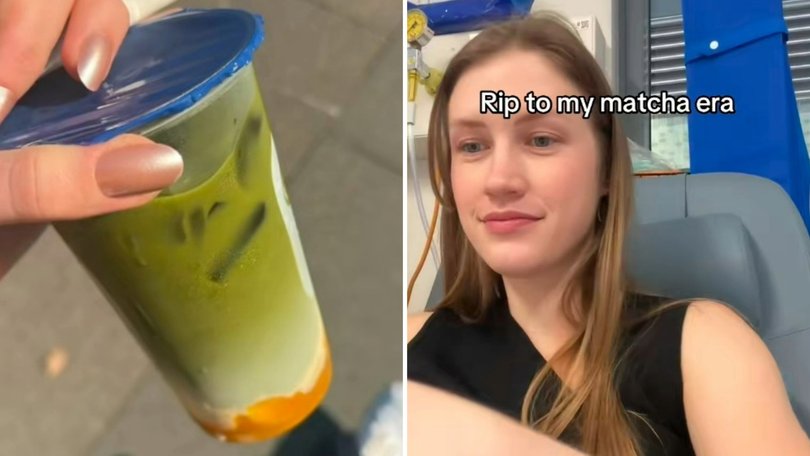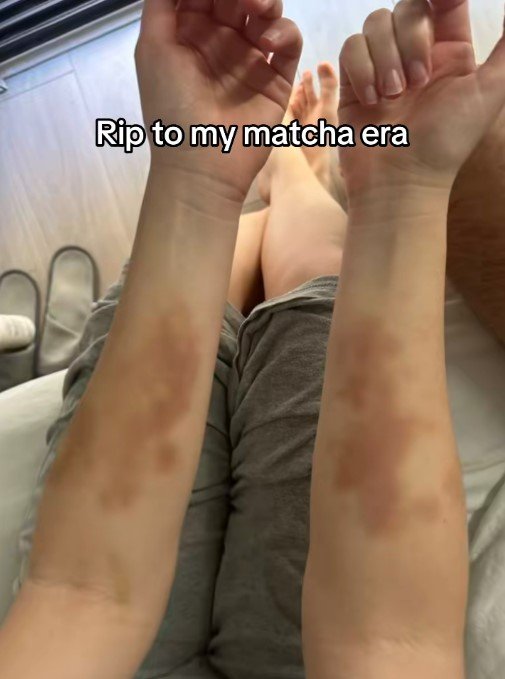Matcha hospitalisation: Sydney woman’s daily drink habit ends in medical condition
An Australian woman says her daily matcha routine left her in hospital, saying she ‘had no idea it could do this’.

A Sydney woman says her daily habit of drinking popular green tea lattes landed her in hospital, and now she’s issuing a warning to others about the lesser-known risks.
Laura, 28, has Crohn’s disease and has long been careful about her diet, avoiding coffee, loading up on vegetables, and managing painful digestive symptoms. But after she gave in to the hype around matcha on social media, she quickly paid the price.
“I kept seeing it online, it’s super trendy, and it comes in all the different flavours,” Ms Wiersma told news.com.au.
Sign up to The Nightly's newsletters.
Get the first look at the digital newspaper, curated daily stories and breaking headlines delivered to your inbox.
By continuing you agree to our Terms and Privacy Policy.“I don’t drink coffee so it seemed like a good alternative to have something if I was going out in a social setting.”
What started as the occasional indulgence soon became a daily routine. But after several months, Laura began experiencing troubling symptoms: relentless headaches, brittle hair and nails, and unexplained bruising.
“Blood tests revealed I was severely iron deficient, my doctor said it was so low, I was almost anaemic,” she said.
“I ended up being hospitalised and requiring an iron transfusion, something I’ve only ever had once previously, before I was diagnosed with Crohn’s.”
The unexpected culprit? Matcha.

Although praised for its antioxidants and digestive benefits, studies show the popular powdered tea can reduce the body’s ability to absorb iron, particularly in people on plant-based diets.
The tannins in matcha bind to non-heme iron, the form of iron in vegetables, blocking absorption.
“With Crohn’s disease as a whole, it is harder for my body to absorb nutrients,” she explained.
“So for me to get iron, I actually don’t eat a lot of meat because it is harder for me to digest, so I typically look at getting it from veggies such as spinach.
“Basically I was turning to plants for my iron nutrition, but the matcha was blocking it, resulting in a bad reaction on my body.”
After her hospital stay, Laura cut back, now saving matcha for the occasional treat instead of a daily drink. She also shared her experience on TikTok, captioning her post “RIP to my matcha era.”
The video quickly went viral with 2 million views, sparking surprised reactions. “Wait, does it cause iron deficiency???? What???” one viewer wrote.
Another added: “Too much of something is always bad.”
Nutrition experts have reinforced that moderation is key. “Instead, you should include vitamin C-rich foods with meals to improve iron absorption, and drink matcha between meals, away from iron-rich plant-based food,” nutritionist Farzanah Nasser told Vogue.
She added that matcha does still come with benefits, including polyphenols that help gut health, and a steadier caffeine release than coffee.
While the drink remains one of the world’s fastest-growing health trends, Laura hopes her story encourages caution.
“I had no idea it could do this,” she said.

